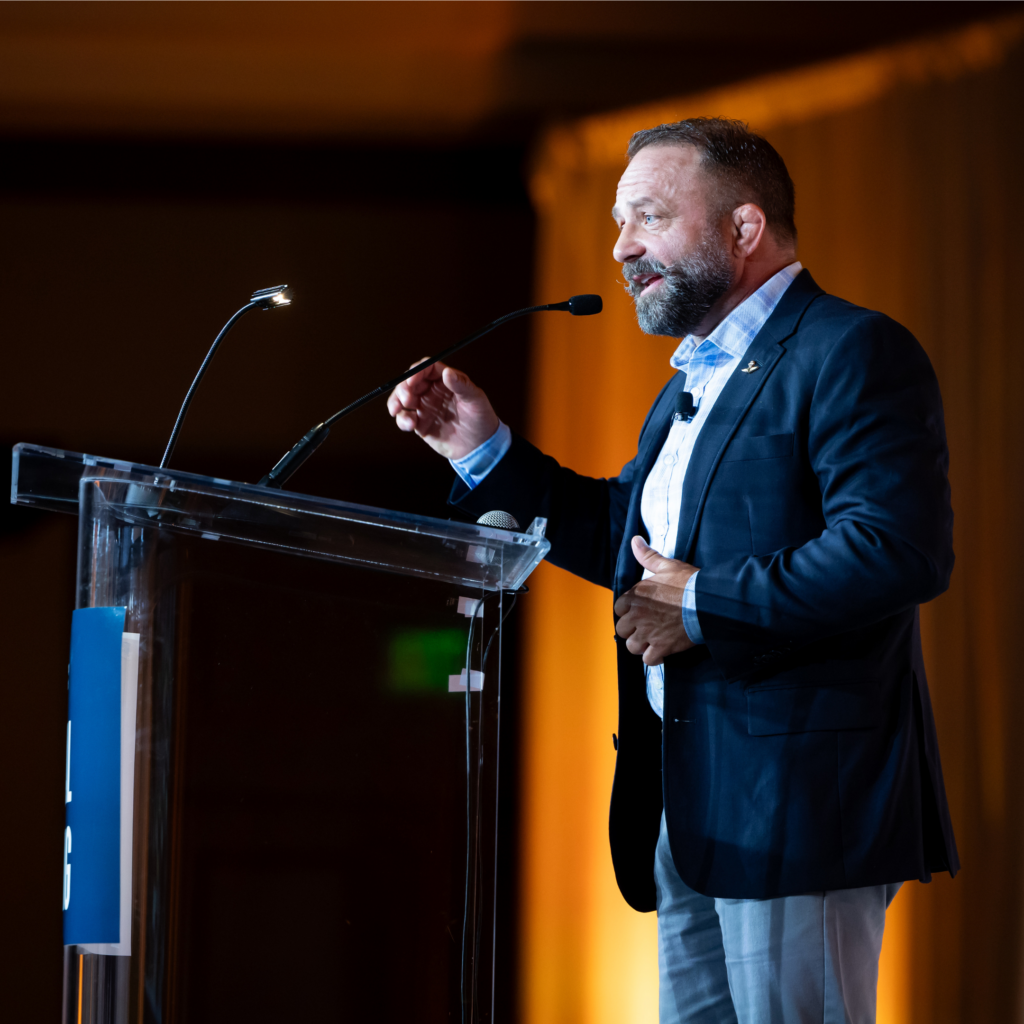“I was dealing with debilitating panic attacks, anxiety, depression led me down a spiral, a spiral that almost cost me my family, and it almost led me to taking my own life. If you guys don’t know… our veteran community is in a suicide epidemic,” said Chad Robichaux, former Force Recon Marine, CEO and Founder of Mighty Oaks, during his Big Idea talk at Philanthropy Roundtable’s Annual Meeting in October.
“[It] wasn’t my own will that stopped me. It was some incredible people who came around me and helped me move forward and challenged me to get back in the fight,” he added.
Robichaux founded Mighty Oaks when he realized that his fellow combat veterans were facing the same spiritual, physical and emotional wounds from their time in Afghanistan. Since then, Mighty Oaks ranches have served over 7,000 of America’s military and first responder warriors through highly successful faith-based resiliency and recovery programs across the country.
Far too often, veterans return from war zones and cannot access the help they need to adjust to life back home. At Philanthropy Roundtable, we are proud to promote charitable organizations like Mighty Oaks that fill the critical gap in treatment for servicemembers left by the Department of Veterans Affairs (VA).
“There were a lot of things on my road to recovery, but nothing was more profound than a restoration by faith. I tried everything. I’ve been through all the VA programs. I’ve been through clinical programs and the government side, the civilian side… nothing had changed my situation until I had made a decision to have this restoration of my faith and be mentored into a biblical relationship with Jesus … and I chose and aligned my life with the life I believe I was created to live.”
The Mighty Oaks Warrior journey begins with intensive peer-based programs that help warriors overcome their past experiences and live a life of purpose. With Legacy Programs for men and women, and marriage retreats, they aim to cultivate spiritual strength of character in a safe, open, nurturing environment. The program also includes aftercare with Might Oaks alumni regular meetings and accountability programs.
“If anyone deserves the right to have alternative treatments to veterans’ care, it’s our veterans,” he said.
If you are interested in learning more about how Philanthropy Roundtable supports donors committed to addressing our nation’s mental health crisis, please contact Esther Larson, senior director of programs at Philanthropy Roundtable here.

